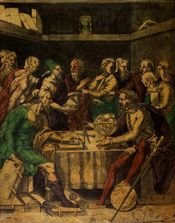|
|
You are not currently logged in. Are you accessing the unsecure (http) portal? Click here to switch to the secure portal. |
Difference between revisions of "Filippo Dardi"
| (2 intermediate revisions by the same user not shown) | |||
| Line 12: | Line 12: | ||
| deathplace = | | deathplace = | ||
| resting_place = | | resting_place = | ||
| − | | occupation = {{plainlist | [[Fencing master]]{{#set: occupation=Fencing master }} | [[occupation::Professor]] }} | + | | occupation = {{plainlist |
| + | | [[Fencing master]]{{#set: occupation=Fencing master }} | ||
| + | | [[occupation::Professor]] | ||
| + | }} | ||
| language = | | language = | ||
| nationality = [[language::Italian]] | | nationality = [[language::Italian]] | ||
| Line 34: | Line 37: | ||
| partner = | | partner = | ||
| children = | | children = | ||
| − | | relatives = | + | | relatives = Bartolomeo Dardi (father) |
| influences = | | influences = | ||
| influenced = [[Guido Antonio di Luca]] | | influenced = [[Guido Antonio di Luca]] | ||
| Line 42: | Line 45: | ||
| below = | | below = | ||
}} | }} | ||
| − | '''Filippo | + | '''Filippo Dardi''' (died 1464)<ref name=Rubboli>[[Marco Rubboli]] and [[Luca Cesari]]. ''[[:File:The_Knightly_Art_of_Combat_of_Filippo_Vadi.pdf|The Knightly Art of Combat of Filippo Vadi]]''. Document circulated online.</ref> was a [[century::15th century]] [[nationality::Italian]] [[fencing master]]. He was an expert not only on fencing, but also astrology, astronomy, geometry, and mathematics.<ref name="Vadi">[[Philippo di Vadi]]. ''Arte Gladiatoria Dimicandi: 15th Century Swordsmanship of Master Filippo Vadi''. Trans. Luca Porzio and Gregory Mele. Union City, CA: [[Chivalry Bookshelf]], 2002.</ref> The son of Bartolomeo (or Dardo) Dardi, he was probably Bolognese by birth (though records exist of a Spanish Lippo Dardi teaching at the University of Bologna between 1444 and 1453).{{cn}} |
| + | |||
| + | In 1412, Dardi was licensed as a fencing master and opened a school in Bologna (in via Pietralata);<ref name="Vadi"/> beginning in 1443, he received an annual stipend of 150 lire from the city in exchange for reducing his fees.<ref>Trevor Dean. "[http://www.scholasanmarco.com/Dardi.html Lippo Dardi]". Ed. Brian Stokes. Schola San Marco, 2015.</ref> In 1434, he seems to have written a treatise on fencing and geometry, and was subsequently given a professorship in geometry at the University of Bologna.<ref name=Rubboli/> Though Dardi's treatise has since been lost, he influenced a great number of prominent 15th century masters, including [[Antonio Manciolino]], [[Achilles Marozzo]], [[Angelo Viggiani]], and [[Giovanni dall'Agocchie]]. Dardi is often credited as the founder of the Bolognese school of swordsmanship, though there is evidence that he was preceded by earlier masters in the late 14th century.{{cn}} | ||
== Additional Resources == | == Additional Resources == | ||
Revision as of 21:01, 18 December 2021
| Filippo di Bartolomeo Dardi | |
|---|---|
| Born | late 1300s |
| Died | 1464 |
| Relative(s) | Bartolomeo Dardi (father) |
| Occupation |
|
| Nationality | Italian |
| Alma mater | University of Bologna |
| Movement | Bolognese swordsmanship |
| Influenced | Guido Antonio di Luca |
Filippo Dardi (died 1464)[1] was a 15th century Italian fencing master. He was an expert not only on fencing, but also astrology, astronomy, geometry, and mathematics.[2] The son of Bartolomeo (or Dardo) Dardi, he was probably Bolognese by birth (though records exist of a Spanish Lippo Dardi teaching at the University of Bologna between 1444 and 1453).[citation needed]
In 1412, Dardi was licensed as a fencing master and opened a school in Bologna (in via Pietralata);[2] beginning in 1443, he received an annual stipend of 150 lire from the city in exchange for reducing his fees.[3] In 1434, he seems to have written a treatise on fencing and geometry, and was subsequently given a professorship in geometry at the University of Bologna.[1] Though Dardi's treatise has since been lost, he influenced a great number of prominent 15th century masters, including Antonio Manciolino, Achilles Marozzo, Angelo Viggiani, and Giovanni dall'Agocchie. Dardi is often credited as the founder of the Bolognese school of swordsmanship, though there is evidence that he was preceded by earlier masters in the late 14th century.[citation needed]
Additional Resources
References
- ↑ 1.0 1.1 Marco Rubboli and Luca Cesari. The Knightly Art of Combat of Filippo Vadi. Document circulated online.
- ↑ 2.0 2.1 Philippo di Vadi. Arte Gladiatoria Dimicandi: 15th Century Swordsmanship of Master Filippo Vadi. Trans. Luca Porzio and Gregory Mele. Union City, CA: Chivalry Bookshelf, 2002.
- ↑ Trevor Dean. "Lippo Dardi". Ed. Brian Stokes. Schola San Marco, 2015.

